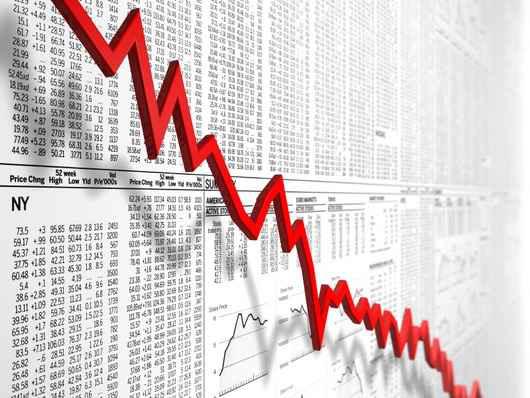ISLAMABAD: The coronavirus pandemic is battering the world’s major economies such as the UK, France, Germany and could trigger the deepest global recession in generations, experts warned on Wednesday, as rising death tolls in Europe and the US dampened hopes for a quick turnaround.
While the Chinese city where the virus was born has been released from its nearly 11-week lockdown, much of the West remains in the throes of a crisis that has killed more than 87,000 people worldwide, with nearly 6,000 overnight deaths, and infected over 1.4 million people, according to latest international media reports.
The hardest-hit countries, among them Italy, Spain, France and the US, are wrestling with how to balance public safety with the devastating impact of lockdowns that have shuttered whole sectors of the economy and erased millions of jobs in a matter of weeks. The economic forecasts are dire. The fallout “may well be the deepest economic recession or downturn of our lifetimes”, warned the chief of the World Trade Organisation, Roberto Azevedo.
Global trade growth could fall by up to a third this year, the WTO said. France has already recorded its worst economic performance since 1945 during the first quarter, shrinking some six percent.
Germany’s economy, the biggest in Europe, is also expected to fall into a “serious recession” and contract by nearly 10 percent in the second quarter, leading researchers warned. Yet health experts stressed it is too early to loosen restrictions.
They say premature moves could accelerate the spread of a disease that has already infiltrated every layer of society, from refugees to royals to Britain´s Prime Minister Boris Johnson, who was reported to be “stable” during his third day in intensive care.
“Now is not the time to relax measures. It is the time to once again double and triple our collective efforts to drive towards suppression with the whole support of society,” said the WHO’s Europe director Hans Kluge.
In Spain, home to the world´s second deadliest outbreak, another 757 deaths were reported Wednesday, bringing the toll up for a second day after several days of decline. Britain, meanwhile, was tense after a record 938 deaths Wednesday, while the prime minister´s hospitalisation underscored the seriousness of the disease for many in a country that was slow to react. It was the day with the highest daily death toll for UK, bringing the number of total coronavirus-linked fatalities to 7,097.
The coronavirus situation has also brought economic difficulties for UK, the fourth worst -hit country in the world. The 55-year-old British leader was “clinically stable” and “responding to the treatment”, his spokesman said, adding he was in “good spirits”.
France confirmed 541 more deaths from COVID-19 in hospital over the past 24 hours, bringing its total official toll from the coronavirus pandemic to 10,869. According to top health official Jerome Salomon, there were now 7,148 people in intensive care, a net increase of 17 from the day earlier, the lowest increase recorded in recent weeks.
The US also faced a punishing 24 hours, with another 1,939 deaths, bringing the nation´s death toll to over 14,000. The country reported 1,528 deaths overnight. President Donald Trump took aim at the WHO, accusing it of a pro-Beijing bias as he threatened to cut funding.
The US president has criticised China´s handling of the pandemic and questioned the accuracy of official statistics that show its deaths have slowed to a trickle. Yet Trump himself has also come under fire for initially downplaying the virus by likening it to the flu and failing to adequately prepare the country — which now has the most infections on the planet.
The US Wednesday surpassed 400,000 novel coronavirus cases, according to international media reports. The pandemic has now claimed the lives of at least 14,369 people in the United States, which leads the world in the number of confirmed infections with 420,705.
The US death toll is approaching those of hard-hit Italy with more than 17,500 and Spain with more than 14,500. Meanwhile, Iranian President Hassan Rouhani urged the International Monetary Fund to give the sanctions-hit country a $5 billion emergency loan to combat its novel coronavirus outbreak.
The Islamic republic is battling one of the world´s deadliest coronavirus outbreaks which it says has killed close to 4,000 people and infected more than 64,500. There has been speculation abroad that the real number of deaths and infections could be higher. Iran has said it needs what would be its first IMF loan in over half a century to continue fighting the virus.
But its arch enemy the United States, which effectively holds a veto at the IMF, is reportedly set to block the loan, arguing Iran will use the funds for military purposes. “I urge all international organisations to fulfil their duties,” Rouhani said during a cabinet meeting.
“We are a member of the IMF… if there´s going to be any discrimination between Iran and others in giving loans, neither we nor world opinion will tolerate it.” A staggering 81 percent of the world´s 3.3 billion-strong workforce has been affected by “the worst global crisis since the Second World War”, according to the UN´s International Labour Organisation.
Governments around the globe are rolling out unprecedented stimulus measures, including a $1-trillion package in Japan. In Washington, Democrats demanded an additional $500 billion to battle the coronavirus crisis, a request that could complicate efforts to push through a new aid package for small businesses. The eurozone is also mired in bickering over a bailout plan for its hard-hit members that would come on top of measures enacted by individual governments.




